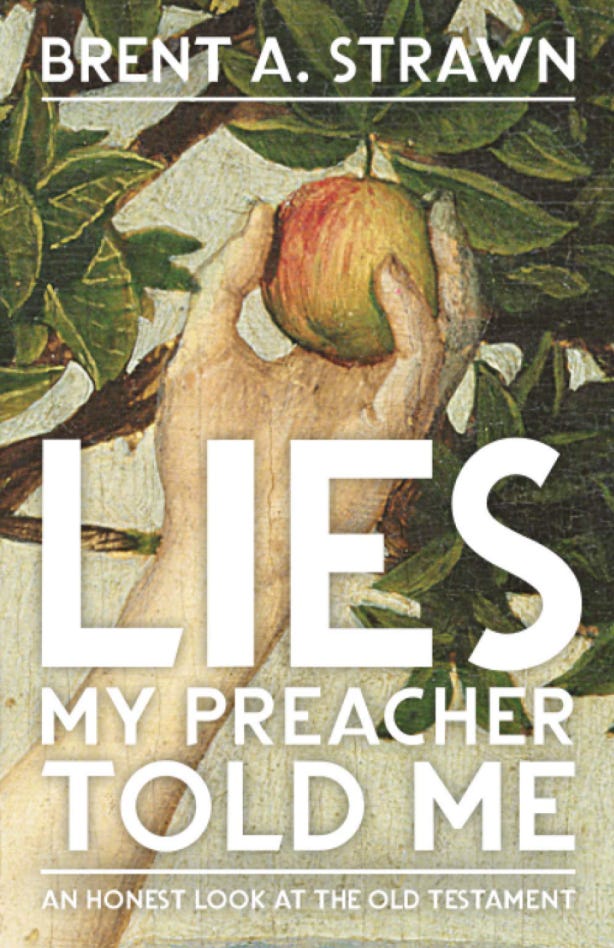Is the Old Testament Spiritually Enriching?
This drops first: the only people who ask this in a comprehensive manner are those who don’t read it. Yes, there are stumbling stones scattered throughout but only a cancel culture’s posture of unforgiveness can read the OT and not be spiritually uplifted.
I have been reading the OT every evening, or most every evening, for several years and I love Goldingay’s and Alter’s translations, and I find texts that surprise, that take my breath away, and that shock me. A bit like reading anyone else’s history. Everybody’s got some crazy uncles and aunts, right?
Brent Strawn, in Lies My Preacher Told Me., probes into the accusation that the OT is not spiritually enriching. He’s kind about it because he’s dealt with it so often, but he does open his chapter with this: “If you’re in my line of work, it’s hardly to take [this claim] seriously.” I would up him one: if you read Jesus you must not take this claim seriously.
To put the matter more directly: the Old Testament is spiritually enriching if it is read for spiritual enrichment, if we approach it as a spiritually enriching book, if we come to it expecting to be addressed by a word that can change us for the better.
Approach matters. It may be the whole story. If you think our ancestors have to be as “perfect” or as “enlightened” as we are you will be guilty not of moral judgment but of presentism with a blindness – as all have been – to your own faults and weaknesses.
He suggests we take the major themes of The Apostles’ Creed and set them into the context of the Bible, with emphasis on the OT:
Creation: Genesis 1-2, Psalm 74, Proverbs 8 and John 1
Incarnation: Revelation 21:3 tied to John 1:14 tied to “tabernacling” among us (Exodus 25-30, 35-40); the grief of the prophets bearing God’s grief (Jeremiah, Hosea)
Suffering: read the Psalms, it’s everywhere. Job, again the same
Judgment: again, the Psalms delight in God’s just judgments bringing justice, and those who long for justice must love the theme of God’s judgment.
The People of God: the entire OT and the entire NT
Forgiveness: Psalm 51 and Isaiah 1:18.
We shouldn’t be surprised in the least that these spiritually enriching themes from the Old Testament resonate with the famous summary of Christian faith known as the Apostles’ Creed (and vice versa). Second Timothy 3:16-17 is quite clear that “every scripture” is not only inspired by God, it is also “useful for teaching, for showing mistakes, for correcting, and for training character, so that the person who belongs to God can be equipped to do everything that is good” (CEB).
If the apostle thinks this is true of “every” scripture, then perhaps we need to think again about how enriching the OT is.



I really like the statement: The Bible is not written to us, but for us! So many make direct applications like 2 Chronicles 7:14 to America which is an example of taking what is written to Israel and applying it directly to us (America). Interpreting and applying the OT requires great skill and nuance. Another complicating factor is the large amount of narrative. In general most preachers and people in the pew take great liberties with narrative often elevating minor points of the story to significant theological truths. To be fair they do they same thing with the Gospels. Rarely do preachers in Charismatic/Pentecostal settings connect the narrative to the argument of the book and the context of the original audience. Then add in reading backwards from 2 Tim 3:16-17 and Luke 24 and things get really, really imaginative and creative. The New Testament authors use of the Old opens the doors to a “Wild West” of interpretation and application. No doubt the OT applies today but with careful hermeneutics, original context work, lots of canonical connection, and sensitivity to genre.
It is hard to understand but if you read it looking for Jesus, He is there! If you look for prophecies that came true and realize and understand that was from Jesus, it takes a whole different meaning. I think it is really difficult to understand the OT until you have studied most of the Bible and see how it all fits together and the people in it show what we should do and shouldn't do and that all of them were used by Jesus in their weaknesses and their strengths!